Hentet fra BBC World News – Africa – By Mohanad Hashim 24.1.2022
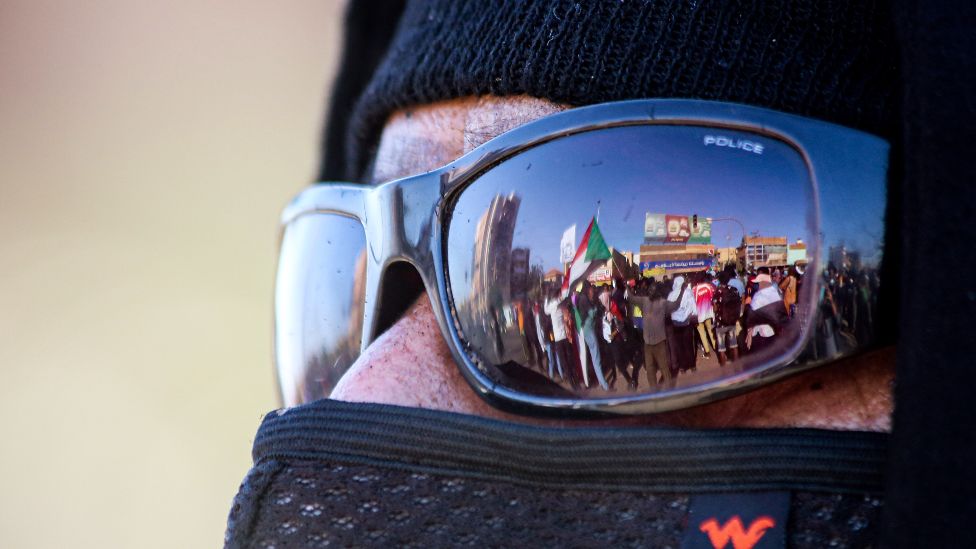
Did I just survive a massacre?» asked a young Sudanese man when he answered my call not long after security forces had opened fire on protesters in downtown Khartoum.
Known by his Twitter name Bashy, he told how one of seven people had died last Monday afternoon in the capital.
«I was filming the protesters and walking when a bullet penetrated his chest; he died in front of me. That could have been me!»
In his mid-twenties, and usually with a smile on his face, Bashy has been protesting on the streets for the past three months.
Like many of his contemporaries, he is furious that the military seized power last October, just over two years into an agreement between the generals and a civilian coalition to share power.
Life had been improving and the economic crisis easing as civilian Prime Minister Abdalla Hamdok brought Sudan in from the cold following sanctions imposed on the country during the long rule of Omar al-Bashir, accused of using the country to sponsor terrorism.
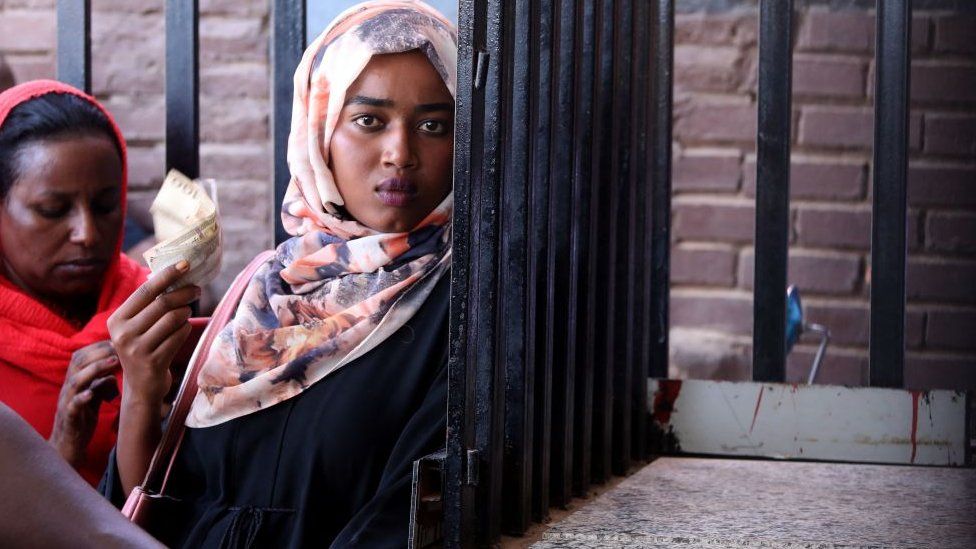 IMAGE SOURCE,AFP
IMAGE SOURCE,AFPThe former president’s military allies ousted him in April 2019 in the wake of mass protests, but they then showed their reluctance to share power with those on the streets when they turned their guns on them in a devastating massacre two months later.
The outcry that followed forced the generals to agree to the transition – but as many suspected, the military was never happy with the arrangement, and the latest coup, they say, has proved them right.
‘Vicious cycle’
Bashy, who has been on the front lines of the recent demonstrations documenting the rallies and marches on his social media feeds, says those on the neighbourhood committees co-ordinating the fightback on the streets are mainly young.
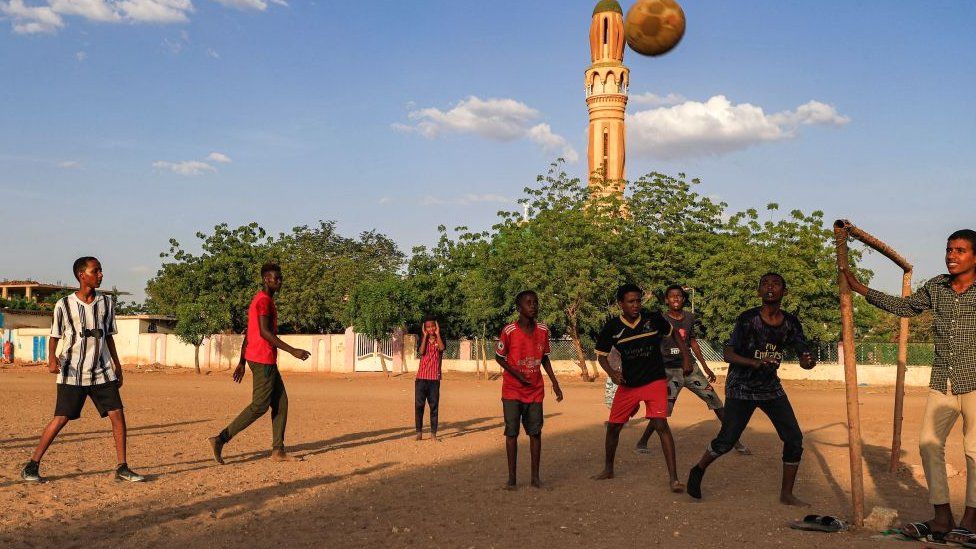 IMAGE SOURCE,AFP
IMAGE SOURCE,AFPIn fact it is estimated that 61% of Sudan’s population is under the age of 25 and they are fed up with what Bashy terms «strong-man rule».
It is a generational conflict with the young wanting a more equitable, peaceful, and democratic future.
«We are different to previous generations,» says Bashy.
«We want to stop the cycle, this vicious cycle of military coups and authoritarianism. That is why we protest – because we wish to see the end of this cycle.»
Loyalists reinstated
The protesters feel they have legitimacy on their side – and the junta has indeed been dealt a blow by the resignation earlier this month of Mr Hamdok.
In the aftermath of the coup he was put under house arrest – but then signed a new deal with the generals – something his civilian coalition, the Forces for Freedom and Change (FFC), rejected.
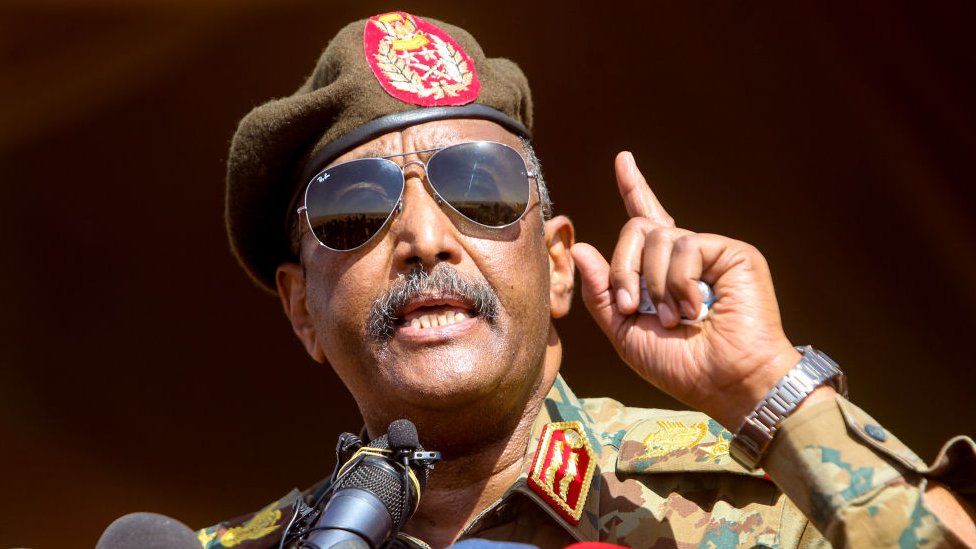 IMAGE SOURCE,GETTY IMAGES
IMAGE SOURCE,GETTY IMAGESHe only lasted six weeks before realising he could not work without the political backing of the FFC.
Some of the economic reforms he brought in – applauded by the international community – were painful for everyone, but his attempts to dismantle the old guard’s hold on the economy also ruffled feathers.
Indeed, this week, Sudan’s military ruler Gen Abdel Fattah al-Burhan finally appointed a caretaker administration, which includes some of those Bashir loyalists, to steer the country to elections.
Nidal, whose name has been changed to protect her identity, is a seasoned protester – first taking to the streets during the Arab spring when people began to brave the streets.
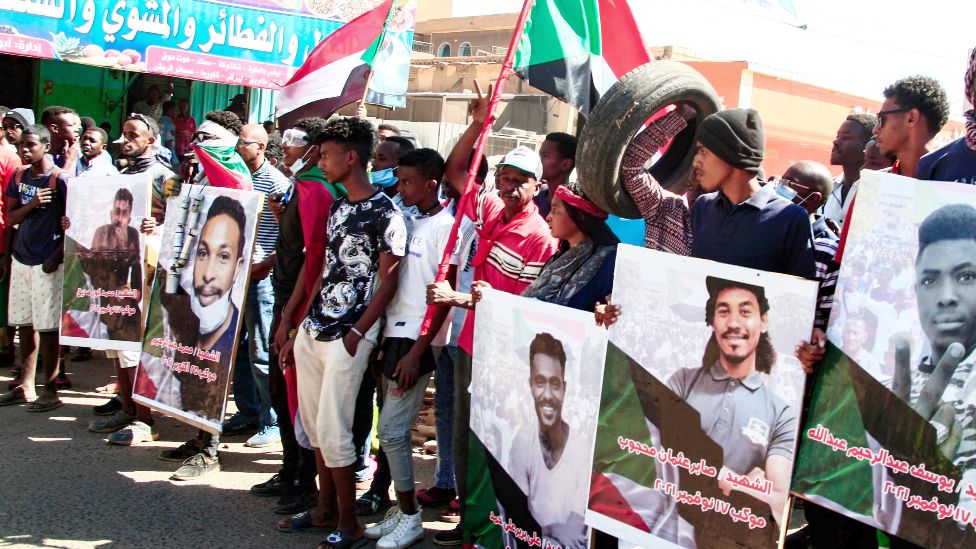 IMAGE SOURCE,AFP
IMAGE SOURCE,AFPShe believes the military’s harsh treatment of the protesters – more than 70 have died so far – is forcing those organising the demonstrations to become more tactical – or more cohesive.
«You can sense the military is doing us a favour – the more of us they kill, helps us the people to come together, reshape our nationalist sentiment and foster a new patriotism for building a new country.»
Since independence the armed forces have monopolised any sense of patriotism.
But their actions – in particular those of the former paramilitary unit, the Rapid Support Forces led by Mohamed Hamdan «Hemeti» Dagolo – and their role in the massacre of June 2019 means much of the respect they were once afforded has been lost by young Sudanese.
For Nidal, the demonstrations have had a devastating effect on her family: one of her 18-year-old cousins was shot dead by soldiers in December.
When I spoke to her late one evening this week she had just been to various barricades in Khartoum to round up her many other cousins to check they were all safe.
Yet the situation has just made them all the more determined – because they feel they can really make a difference.
«I am ready to die,» she told me.
Trust broken
In mid-January, the junta announced that it was setting up a counter-terrorism force to deal with the security challenges posed by the protests – which are also hitting the economy.
Viewing peaceful protesters as terrorists is seen by many as taking a leaf out of the Bashir-era rule book.
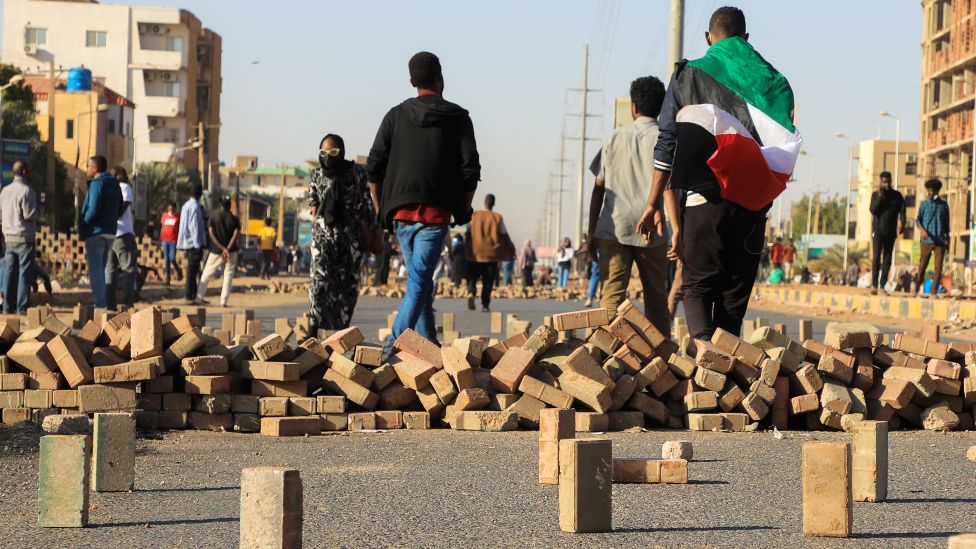 IMAGE SOURCE,EPA
IMAGE SOURCE,EPAIn their statements, the authorities note how many policemen are injured on duty during the nationwide protests – with little regard to the death of demonstrators.
This week, the death of a police brigadier general has been blamed on the protesters, but activists dispute this and say it is being used as an excuse to unleash yet more force.
And this week’s violence came after an Al Jazeera channel that had been carrying live feeds of the demonstrations and rallies was banned.
The crackdown on media freedoms has become unrelenting: journalists have been beaten and assaulted, media offices attacked and international media barred.
There has been a flurry of diplomatic activity to break the stalemate, including a consultation process launched by the UN.
But many Sudanese have little faith in the UN, given it backed the failed November pact entered into by Mr Hamdok.
And the protesters just want the military out of any government as they feel the generals are not to be trusted.
«No negotiations, no partnership, no legitimacy» is the rallying cry of the current pro-democracy movement.
Against this backdrop, the Friends of Sudan met this week to try and hammer out a solution.
This group includes the US, the UK, European states and junta allies Saudi Arabia and the United Arab Emirates.
Yet both Bashy and Nidal sound unimpressed by such efforts – and they agree the counter-terror force will not cow them.
«We are world class in peaceful resistance, Monday’s massacre will not deter us,» Bashy said.
«We are not letting them take our blood, sweat and tears and use it for their own gains.»
More on Sudan’s coup crisis: